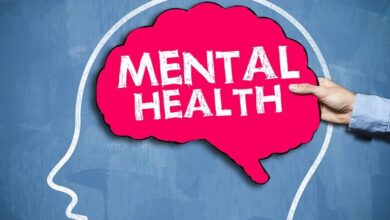Residential Mental Health Treatment: A Path to Healing and Stability

When managing emotional overload, and for you or a loved one, it has become chronic, the best course of action is to look into residential mental health treatment. This level of care encompasses a protected, organized setting away from daily triggers, providing distraction-free healing.
In comparison, outpatient therapy, where care is offered for several hours only a few days a week, surrounds the therapists with continuous support, a community of peers, and evidence-based approaches focusing on fostering meaningful change through boundless interaction.
What Is Residential Mental Health Treatment
For individuals dealing with moderate to severe mental health concerns, residential mental health treatment is an all-encompassing live-in therapeutic program that comes with uninterrupted monitoring and access to mental health professionals. These programs typically include:
- Supervision and access enabling around the clock mental health professionals.
- Individual, group and family sessions to provide daily therapy.
- Ongoing Medical supervision along with pharmacy skilled paperwork, Psychiatric evaluations and medication management.
- Life skills education and creative arts for leading a relapse free life.
- Supportive wellness activities such as yoga or meditation.
The complete environment aids in teaching deep emotion restoration, skill strengthening and recovery beyond the strain of everyday life.
Who Might Gain From This Threaded Care
Not everyone requires residential care. Nonetheless, this is the best option for certain individuals who:
- Are unable to cope with day-to-day activities owing to mental illness
- Have recurring suicidal ideations and mental demise
- Have previously undergone outpatient treatments without any significant improvement.
- Live in a setting that is symptomatic and quite a few triggers
- Need comprehensive multi-axis support for mental health and abuse of substances.
Residential care offers the consistency and framework that people require to formulate understanding, safety and strength.
Major Advantages of Mental Health Treatment in a Residential Setting
1. Stable and Secured Setting
Elimination of external stressors is possible within a certain and expected space. A daily routine can be supported. Patients can devote their entire attention to their healing process without any disturbances from toxic relationships, job stress, or triggers.
2. Coverage by Multidisciplinary Specialists
The care team typically consists of a psychiatrist, psychologist, therapist, nursing staff, and auxiliary aides. The ill devise mental, emotional, and behavioral strategies that are responsive to the diagnosis.
3. *Daily/ Weekly Therapeutic Interventions*
Regular sessions aid in identifying root problems while also providing relevant coping strategies. These might contain:
- Cognitive Behavioral Therapy (CBT)
- Dialectical Behavior Therapy (DBT)
- Trauma-informed Care
- Mindfulness and Emotion Regulation
The intensity of care provided allows for therapeutic breakthroughs to be attained straight away instead of having to wait months as in an outpatient setting.
4. Peer Support
Living amongst individuals sharing similar mental challenges creates a different kind of therapeutic environment. Learning and practicing in groups enhances bonding and helps alleviate loneliness and disconnection.
5. Focus on Long-Term Recovery
Treatment goes beyond simply managing and alleviating symptoms; it’s about fostering resilience. Clients learn how to set boundaries, respond to identified triggers, and plan life beyond treatment with confidence.
Common Conditions Treated in Residential Programs
Residential mental health programs address a broad range of diagnoses, including:
- Major Depressive Disorder
- Bipolar Disorder
- Generalized Anxiety Disorder
- Panic Disorder
- Obsessive Compulsive Disorder-OCD
- Post-Traumatic Stress Disorder (PTSD)
- Borderline Personality Disorder (BPD)
- Schizo-Affective Disorder
- Dual-diagnosis (Mental health and substance use disorder)
Programs are developed to fit each person’s clinical requirements while also ensuring overall well-being is achieved.
What to Expect Day to Day
Days in a residential mental health treatment program are balanced and organized. You can expect the following:
- Morning meditation, journaling, or light exercise.
- Individual therapy sessions working on current issues.
- Group therapy revolved around topics like emotional regulation and self-esteem.
- Mental health and coping skills education classes.
- Recreational activities that promote fun, self-expression, and socialization.
Most evenings are spent having unstructured time or quiet activities to aid in relaxation and overall assimilation of concepts learned.
What is the Duration of Treatment Plans?
Treatment program length usually differs depending on the individual’s severity of the condition and personal objective. Most people, however, stay between 30 and 90 days. Some facilities have extended care options or step-down programs for those who require additional time.
What makes this type of treatment different from the rest?
Residential care features the most intensity when compared to outpatient or partial hospitalization programs. Outpatient has flexible scheduling but often lacks sufficient support for severe or more complicated cases.
The advantages of Residential Programs include:
- A therapeutic environment that is all-inclusive.
- Increased caregiver participation.
- Less external stimuli.
- Instant emotional crisis management.
This makes it ideal for individuals who need more assistance than weekly therapy sessions to further progress and gain control.
Selecting the Most Appropriate Residential Program
Finding a suitable program according to your preferences and requirements is essential. Here are useful pointers:
Verify Qualifications
Always check if the facility has the right license and accreditation. Accreditation by The Joint Commission or CARF can be relied on.
Examine the team of therapists.
The therapists should be skilled professionals in mental health and work within a multidisciplinary team.
Inquire About Areas of Focus
Certain programs focus on trauma, substance abuse, eating disorders, or mood disorders. Selection of such programs greatly improves the chances of success.
Check the Daily Sample Schedule
A good program consists of provided structure, therapeutic depth, and ample time for personal development. Such balance should be evident in their daily schedule.
Think About the Place
Peaceful places foster healing. The environment should not only include a serene coastal retreat but also a private residential home.
Does My Insurance Cover It?
Most of the insurance programs available to patients make provisions for covering the costs of attending residential programs, although the extent of coverage varies. Make sure to confirm the following with both the treatment center and your insurance provider before enrolling:
- Eligibility criteria
- Medical necessity documentation
- Copayments or out-of-pocket costs
- Length of stay coverage
Other facilities may also have financial aid and other sliding scale options available, which provide other forms of assistance.
Aftercare: What Happens When You Leave?
Recovery starts the moment you step out the door. Effective residential programs have a comprehensive discharge plan that includes:
- Continued outpatient therapy
- Psychiatric medication management
- Support groups and 12-step meetings
- Coaching on life skills and career readiness
- Sober living, if applicable
These resources are vital to improving chances of long-term success and reducing the risk of relapse.
Why Residential Mental Health Treatment Works
Feeling mentally overwhelmed makes it hard to navigate life’s responsibilities, and it is easy to feel stuck. While outpatient therapy can be helpful, it is not always enough. Residential treatment offers:
- Relief from triggering environments
- 24/7 access to support
- A therapeutic foundation
- Skills and coping strategies
The idea is to provide patients with a higher level of care. This approach does not just stabilize patients; it enhances their quality of life.
Final Thoughts
Residential mental health treatment is a remarkable opportunity for recovery. At Pacific Coast Mental Health, the process is centered around rest, healing, and growth guided by experienced professionals. If outpatient care does not suffice, there is still hope. This next step is the supercharge needed to create an everlasting difference. You are not alone in this battle, and you do not need to face it alone. The right treatment in the right environment can make all the difference in your journey to wellness.
FAQs
How do I start the process of getting into residential treatment?
The first step is to get in touch with a facility for a pre-treatment assessment. The facility will walk you through the steps and verify your insurance coverage.
Can I bring personal items with me?
Of course. Due to some restrictions, certain items may not be accepted. Please remember to bring your essentials, i.e., comfy clothes, toiletries, a good book, and a journal.
Will I be cut off from the outside world?
Family and friends can communicate with you, but this is supervised. You’re not cut off completely. The core focus of this program is healing, not isolation.




